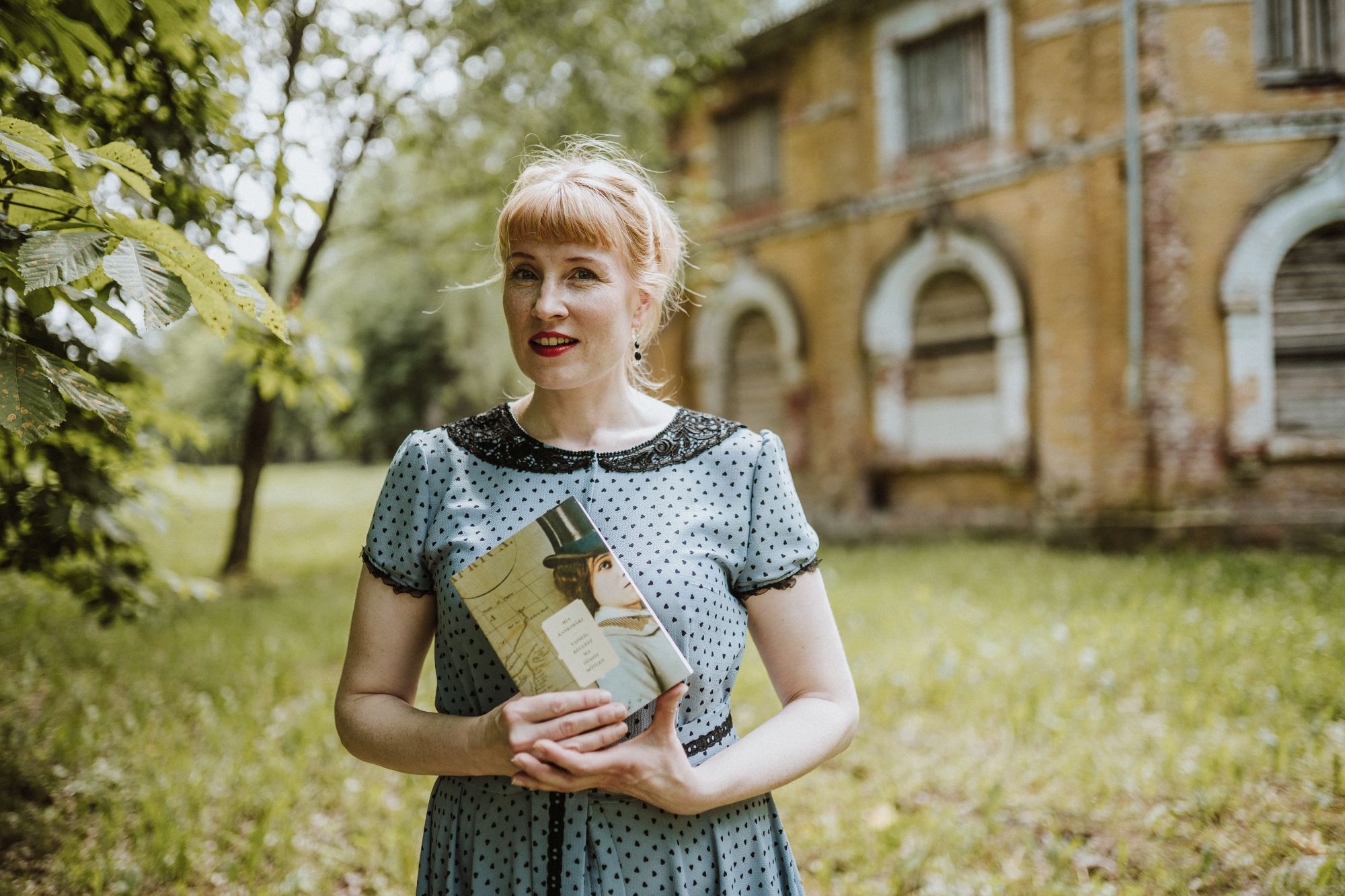”It was difficult for me to learn how to read and write. I did not understand letters, and I was too afraid to ask for help. In the second grade, I was diagnosed with dyslexia. In the third grade, I was moved to a special class that had also other children with dyslexia. They called the class ’a reading class’. My teacher was a very dedicated pedagog who used modern ways of teaching. She had us do fun things like plays, and I noticed that I was great at making stories. That is how I eventually learned to write, and I remember thinking ’This is what I want to do.”
Later I studied to be an elementary school teacher, and my inspiration was my teacher. My classroom was so cozy! As a teacher, I was fascinated by the process of learning to read. I saw my own struggles on many children. Now that I work as an author, I have met a lot of kids on different visits. I always tell them how difficult reading was for me. It is important for the kids to know that adults have struggled, too. It helps them keep going.
Reading and literature should be a part of everybody’s life since early days. Parents should understand how they can help their child’s ability to read. At school, we emphasised to them that children need a large vocabulary in the future, and that vocabulary grows by reading out loud to children. As a parent, you cannot just assume that advancing reading is the school’s priority. Parents have an important role in that, too.
It is important to notice that you are a reader! If you feel like you can read, you will grab yet another book. Reading is something that needs practicing, and you need to read a lot to become fluent. If you are eager and interested in reading, the practice does not feel like work. Therefore, stories must happen in an environment that a child knows and can relate to. That makes reading more fun and understandable. As a writer, you should not focus on writing easy language. Instead, you should focus on writing an appealing story.
Literacy is a lens to different worlds and a way to learn about other people’s realities. If you read books, you can learn about different ideas in present days and in history. Reading allows you to travel to countries you would not have otherwise visited. It allows you to find people who struggle with the same problems that you do.
A crucial part of democracy is that anyone can be a part of news, knowledge, and culture. By reading, you can get your voice heard.”
Helena’s most memorable reading moment:
When I was young, I read Per Anders Folgeström’s Stadserie, ‘City Series’, that takes place in Stockholm. It was a great experience. The story reminded me of my grandmother’s family that lived in the same neighborhood that the series takes place in. They were poor and lived the same kind of life that in the books, so they were fascinating to read.
Helena’s tip for Read Hour:
Create a calm space for reading. Make yourself a cozy corner that has a pleasant light and not much noise. If you have children, read them out loud. You can take turns if you are reading with a beginner; a child will read one page, the adult the next page and so on. This makes the child feel that they are not struggling alone, and you are there to help. With older children, you can both read a section of the same book and then discuss what you read. There is no way you can discuss too much about books.




